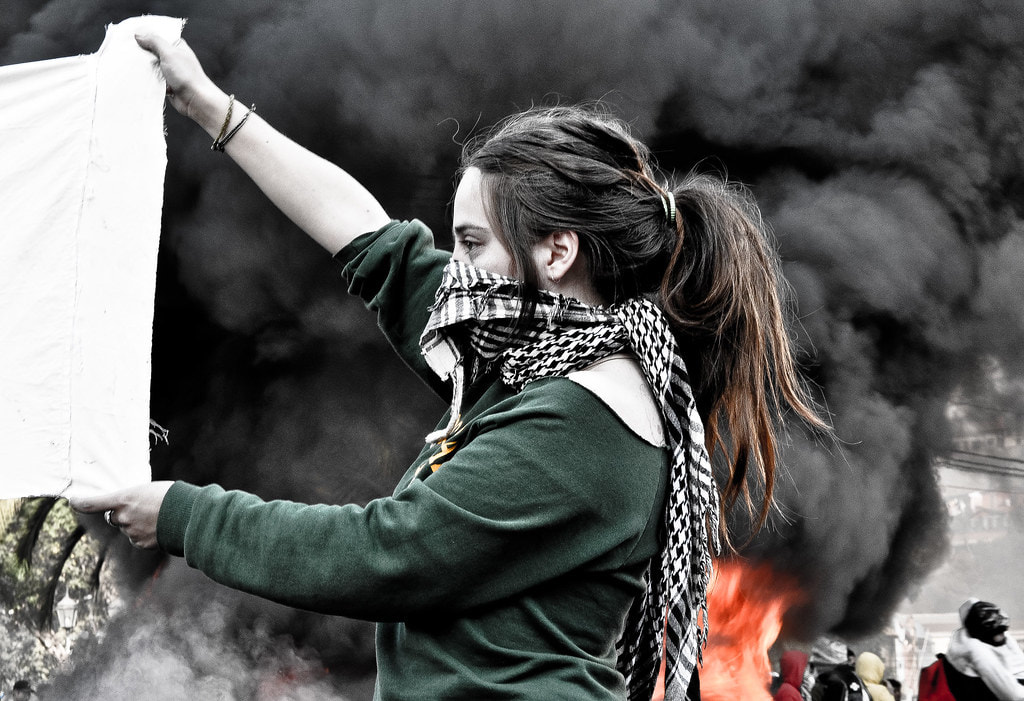|
12/28/2022 Environmental struggles in the Chilean Global South: a matter of class and global inequalities By: Camilo Godoy PichonRead NowLast years we have seen many environmental struggles in Latin America: from the Bolsonaro’s illegal mining to mapuche people in Chile and Argentina or the Yagan people against colonialist expansion of salmon farming in the same countries. This is not only a matter of being “green” or an emotional approach, but in the Global South (understood not only as the so called Third World’ , but also for the excluded places in the Global North) every struggle has some extra component: the indigenous or local people fight against the capitalist expansion and the destruction of nature, but also with the subordination of these regions to the Global North interests or needs. It has been seen recently by Elon Musk's attempt to justify the bolivian coup towards Evo Morales in 2019 (“we coup whoever we want. Deal with it!”). According to the Argentinian author Julio Sevares, Chile is the most commodity-dependent country in Latin America. This started with the dictatorship of Augusto Pinochet and its attempt to transform the whole country into a store for the needs of the big corporations. Chilean forestry has been thought of as an export to the US, China and Japan, as same as mining. Even lithium mining, which Chile is one of the most important owners in the world has been kept legally -and also by the “social democratic” current government of Gabriel Boric- with an ambivalent intervention of the state and the clear policy of not industrialising, for not teasing big countries. Chicago Boys’ doctrine was to develop a country based merely on commodities, which has been destroying our lands, lakes, animals and local communities during recent years. In this last case, in 2019 we saw how our little country was ‘invaded’ by some Scandinavian attempts to expand salmon farming to the Sub Antarctic region of Chile and Argentina. This event, with the miserable reunions from both ex Presidents Sebastian Pinera and Mauricio Macri with the Norwegian Kings, implied a serious threat for national sovereignty, for the communities and for the ecosystem. This wasn’t a matter only about Macri and Pinera’s agenda: this means how the countries from the Global North keep seeing Latin America as their backyard and the resources provider. Because salmon farming in Chile does not have the same standards as it does in Norway: in Chile we had the most amount of antibiotics in salmon and a serious damage to the sea due to these immense pools with salmon, existing in southern Chile. Cardenas (2019) has said that 98% of Chilean salmon goes to export. So this is clear evidence that current global capitalism looks to maintain the global inequalities at the same time it destroys our lands, our forests and animals, and especially threatens local sovereignty. In that sense, greenwashing is the closest thing to what Marx identified as “ideology”: these commodity companies present themselves as environment-friendly and look for the validation of the global capital, with the cost of extracting and provoking contamination, which will not be seen from the consumers of the Global North that take what we produce. A little of hope appeared from the organized local people of Ushuaia and Puerto Williams, where in the first city they made the historical triumph to suppress all salmon farming from its territory, after Macri’s attempt to expand it and take it there for the first time. These people understood that you cannot dissociate class from environmental conflicts and that the sovereignties and destinies of our peoples will prevail if we confrontate the global structure that puts us in a second place. The interesting thing about this is that whatever Norway does internationally (bombing Libya or destroying Chilean ecosystem for example), they will keep being considered a “sustainable state,” and Scandinavian countries, perceived as an example for the rest of the world. This, while our people fight and even die, because of how neoliberal globalization functions. AuthorCamilo Godoy Pichon is a chilean sociologist from the University of Chile and MA candidate in International Studies in University of Santiago, Chile. He has worked on topics such as environmental struggles and conflicts in the Global South, in regards to companies or corporations who promote extractivism and ecocide. He has worked with indigenous people, elders, and children from poor towns and areas from his country, along with developing academic work and research on the environmental justice' topic. He is very interested in analyzing how class influences environmental conflicts and other inequalities in South America and specially in neoliberal countries such as Chile. He has published 2 social/political poetry books both in Chile (2019) and Argentina (2022) and another poetry book on political repression during Pinochet's dictatorship, for the case of poor youngsters killed by the police in Southern Santiago in 1973, which will be published in Spain in early 2023. Archives December 2022
0 Comments
Leave a Reply. |
Details
Archives
July 2024
Categories
All
|

 RSS Feed
RSS Feed